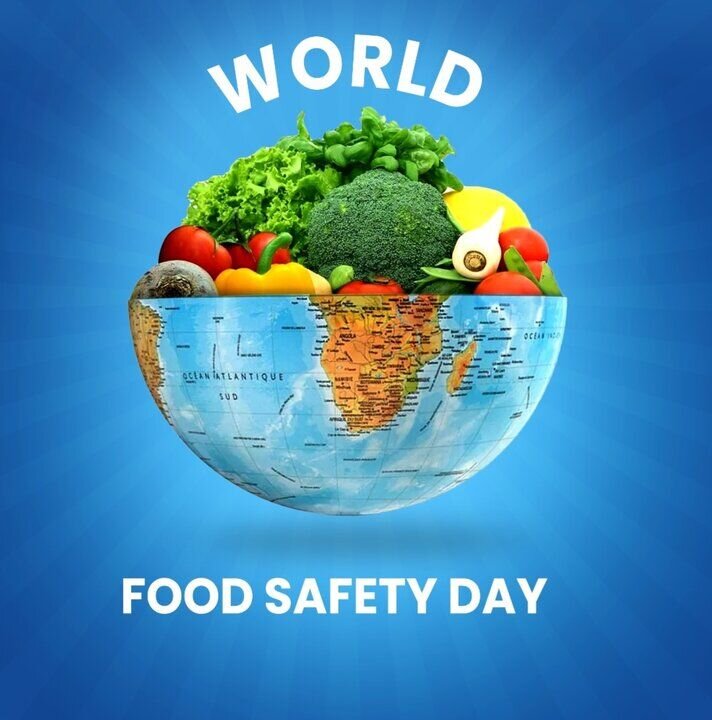Food safety enhances public health, lowers healthcare costs

TEHRAN – Food and beverage safety plays a key role in improving public health as unhealthy and contaminated products pose a threat to the health of individuals, and impose heavy burdens on the healthcare system of the country.
The healthier and safer consumed foods are; the healthier the society and the lower the healthcare costs will be, Mehr News Agency reported.
Abdolazim Behfar, an official with Iran Food and Drug Administration (FDA), referring to the legal measures of the FDA in observing the safety of food products, highlighted food production units and imported shipments, containing raw materials and products, are precisely monitored.
He made the remarks on the occasion of World Food Safety Day which is annually celebrated on June 7.
The Day aims to draw attention and inspire action to help prevent, detect, and manage foodborne risks, contributing to food security, human health, economic prosperity, agriculture, market access, tourism, and sustainable development.
The official went on to say that over the past Iranian year (March 2023 – March 2024), 4,884 cases of complaints about food products were handled. Out of the total number of supervisions, about 5,100 violating units were identified and referred to the judicial authorities.
Based on Iran FDA supervision, 266 unauthorized production units were identified, and more than 170,000 items of contraband were discovered, Behfar stated.
“Additionally, 148,000 illegal and counterfeit products were discovered, and about 3.8 million kilograms of food and beverage shipments that did not comply with regulations were destroyed over the past year,” he further noted.
The universities of medical sciences across the country are the executive arms of Iran FDA, which inspects major distribution centers of health-oriented products, Behfar said.
Food safety: prepare for the unexpected
Food safety is a collective responsibility – everyone from producers to consumers needs to play their part.
However, there are exceptional situations where even if we have all played our part, the unexpected intervenes and food safety is compromised.
Even then, there is always something we can do to avoid illness.
Food safety incidents can range from minor events to major international crises, whether it is a power outage at home, a food poisoning at a local restaurant, a voluntary recall of contaminated products by a manufacturer, an outbreak from imported products, or a natural disaster.
Food safety hazards do not recognize borders, so in an increasingly interconnected global food supply, risks posed by unsafe food can rapidly evolve from a local problem to an international emergency.
This year’s theme, ‘Food safety: prepare for the unexpected’, underlines the importance of being prepared for food safety incidents, no matter how mild or severe they can be.
Food safety incidents are situations where there is a potential or confirmed health risk associated with food consumption. A food incident can happen, for example, due to accidents, inadequate controls, food fraud, or natural events.
While being ready to manage food safety incidents requires dedicated efforts from policymakers, food safety authorities, farmers, and food business operators, consumers also can play an active role.
Why improving food safety is important
Access to sufficient amounts of safe food is key to sustaining life and promoting good health.
Foodborne illnesses are usually infectious or toxic in nature and often invisible to the plain eye, caused by bacteria, viruses, parasites, or chemical substances entering the body through contaminated food or water.
Food safety has a critical role in assuring that food stays safe at every stage of the food chain - from production to harvest, processing, storage, distribution, all the way to preparation and consumption.
With an estimated 600 million cases of foodborne illnesses annually, unsafe food is a threat to human health and economies, disproportionally affecting vulnerable and marginalized people, especially women and children, populations affected by conflict, and migrants.
An estimated 420,000 people around the world die every year after eating contaminated food and children under 5 years of age carry 40 percent of the foodborne disease burden, with 125,000 deaths every year.
This international day is an opportunity to strengthen efforts to ensure that the food we eat is safe, mainstream food safety in the public agenda, and reduce the burden of foodborne diseases globally.
MT/MG
Leave a Comment